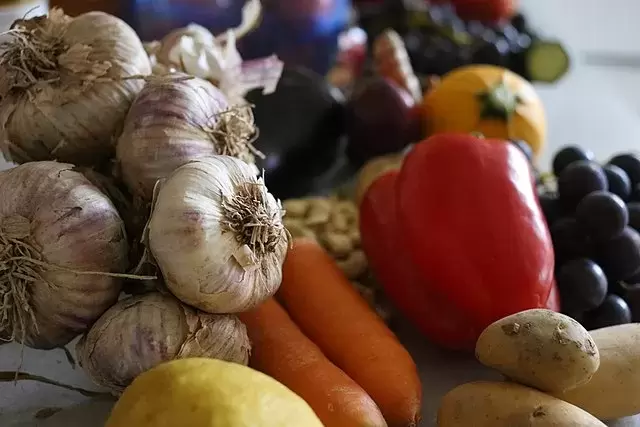For Jennifer Cody, a Nuu-chah-nulth Tribal Council (NTC) dietician, she comes from a family of healers. Being a dietician has come natural for her since she enjoys the way food connects to harvesting, growing, community building and nature.
“Food is sort of one of those things that’s kind of woven into everything within…culture with Nuu-chah-nulth people,” said Cody. “Many of the teachings in terms of how we respect and connect with our environment and the land and how we see other living beings as being a part of everything around us.”
Cody explained that activities that involve harvesting and fishing traditional foods all have Nuu-chah-nulth stories and learnings connected to them.
For Nuu-chah-nulth, sitting down for a meal is not only a chance to feast and connect socially, but an opportunity for cultural stories and teachings to be shared, said Cody.
“Eating is an essential part of passing along the teachings,” said Cody.
A Nuu-chah-nulth diet, focused around local seafood, harvested and seasonal plants, and sea plants, contributes to a healthy diet, explained Cody.
Currently nettles which contain iron, antioxidants and soluble fiber are in season, she continued.
Alternative to a Nuu-chah-nulth diet, Cody recommends a Mediterranean diet, which is similar.
A diet local to the Mediterranean basin emphasizes healthy fats, such as olive oil which is used as an alternative for butter and other oils, according to the Harvard diet review. The diet is primarily plant-based focusing on the daily consumption of fruits, vegetables, whole grains, olive oil, beans and legumes, nuts, herbs, and spices. Seafood and dairy products are consumed in smaller quantities.
“Without certain foods, there’s just no way that we can be healthy,” said Cody.
Fruits and vegetables provide fiber which are significant to bowel health, while carbohydrates provide energy, said Cody.
Proteins are essential to rebuilding muscle and to help with healing after surgery or an accident, she said. Protein also serves to carry nutrients throughout the body, which then help with brain development and maintaining healthy oxygen, she continued.
“All of it just ends up being entirely connected,” said Cody.
In recent years the gut microbiome, where trillions of bacteria live within the gastrointestinal tract, has been studied for its connections to immune function, metabolism, hormone regulation, and neurological health, according to the Canadian School of Natural Nutrition.
Through microbiota-gut-brain-axis, the pathway that the gut and brain communicate interchangeably, is controlled by the vagus nerve, which is part of the parasympathetic nervous system.
According to recent studies, because of this connected pathway, the gut is able to influence the brain and mood, cognition, and mental health of an individual while the brain can influence intestinal activities.
“Our gut and our minds are intimately connected,” said Cody.
Cody explained that according to studies, shifting to a nutritious diet has the ability to impact mental health long term.
“The nutrition piece is something that has a great power to be able to directly address people's mental health in that regard, at least for anxiety and depression,” said Cody. “It’s not the only tool but it’s a very powerful tool.”
Cody continued to note that stress developed from food insecurity also impacts overall mental health.
“If you are food insecure or take care of children, and you're not able to provide enough, or you're having challenges in providing enough food for yourself or for your children, the stress that's created from that is very significant,” said Cody.
For Michael Wesley of Gitxsan, he grew up on a small reserve in northern British Columbia. Food insecurity was something that was prominent for him in his youth, which would lead him to go to school for dietetics so that he could address the issue.
Now a registered dietician, he recently heard a knowledge keeper speak about the interconnectedness of land, food, and people.
“We eat the land’s food and we are the land,” said Wesley reflecting on the story. “From my perspective, in addition we’re made up of all the same things: carbohydrates, fats, [and] proteins.”
Cody explained that processed foods, such as chips and pop, from Western systems contribute to unhealthy lifestyles. Wesley explained that food insecurity promotes illness such as diabetes and obesity.
“I think a lot of communities are food insecure in a lot of ways that people don't realize,” said Wesley. “That's demonstrated through health disparities from what I've come across for the past couple of years of my experience as a dietitian.”
For Wesley, food security is having access to enough quality and nutritious foods that promote a healthy life.
“It’s our medicine, for sure, because it takes care of us,” said Wesley. “I guess the old saying was, ‘you are what you eat’.”

